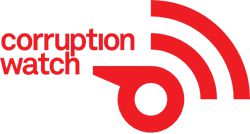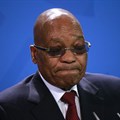Mokonyane lied about Bosasa favours, Zondo finds

Commission chairperson, Chief Justice designate Raymond Zondo has recommended in the third instalment of his report that Mokonyane, like many others implicated in the Bosasa evidence, be investigated for corruption in terms of the Prevention and Combating of Corrupt Activities Act. He has found that she was benefiting from a relationship with Bosasa because of her proximity to power and influence within the ANC.
Mokonyane denied allegations by Bosasa’s former COO Angelo Agrizzi that she was among the senior leaders of the party who received favours such as monthly cash payments and lavish functions at the expense of the company. Her assertion was that Agrizzi’s motivation for making the scathing allegations against her was his racist attitude, and is not based on any tangible evidence.
Zondo differs: “Ms Mokonyane falls squarely within the lists of public office bearers in both [commission terms of reference] TOR 1.1 and TOR 1.4. She served in various senior roles in the executive at national and provincial level.”
Denial
Mokonyane, however, denied Agrizzi’s testimony that on more than one occasion – once while premier of Gauteng in 2008/09 and later when she was minister of water affairs (now water and sanitation) - she had asked Bosasa to conduct security needs assessments for functions within the two portfolios. In both instances, the assessments were done at Bosasa’s cost and reports produced with the understanding that the work would be put out to tender, but this never happened. The request as premier was for an analysis of security needs for Gauteng’s public hospitals, while the later one was for the same with regard to the country’s dams. The cost of the reports was R2m and R1.3m respectively, with the latter project requiring Bosasa to outsource to a company with knowledge of the environment.
“The facilitation provided by Ms Mokonyane in relation to the dams report did not benefit Bosasa within the meaning of TOR 1.4. However, it did benefit Ms Mokonyane herself in that she continued to receive benefits from Bosasa and efforts such as this one would probably have given the impression that she was attempting to look after Bosasa’s interests,” Zondo notes in the report.
Another area of interest in the evidence against Mokonyane was around Agrizzi’s allegation that Bosasa paid for a birthday party for her when she turned 40. The event was held at the Victorian Guest House in Krugersdorp, not far from the Bosasa head office. Zondo says that while Mokonyane initially denied receiving such a favour from the company on account of Agrizzi’s evidence saying it was her 50th birthday celebration, she later conceded after being shown the evidence of the guest house owner and invoices relating to the event.
Dishonesty
“The difficulty for Ms Mokonyane is that she was shown to be dishonest in relation to the benefit constituted by the sponsorship and arranging of her 40th birthday party, including Mr Agrizzi’s role in it. That has the effect of undermining the reliance that can be placed on her other denials pertaining to the receipt of benefits from Bosasa, including the alleged cash benefits.
“Ms Mokonyane’s denial that Bosasa made payments of R50,000 to her monthly, or on at least three occasions that Mr Agrizzi said he had personal knowledge of, is not credible and falls to be rejected.” This is because Agrizzi had not reason to falsely implicate her, adds Zondo. “The finding is, therefore, that Bosasa did make monthly payments of R50,000 to Ms Mokonyane over a certain period and those payments had no lawful basis or cause.”
Little black notebook
Agrizzi’s evidence is that he kept a black notebook with entries for all the monthly cash payments to be made to politicians and public officials on a regular basis. The contents of the notebook were admitted as evidence by the commission.
“Considering the foregoing analysis with reference to TOR 1.1, there were clearly extensive attempts by Bosasa and its leaders, through various forms of inducement and gain, to influence Ms Mokonyane in her position as a member of the national executive, the provincial executive and office bearer in organs of state.”
This article was originally published on Corruption Watch.
Source: Corruption Watch

Corruption Watch (CW) is a non-profit organisation launched in January 2012, and operates as an independent civil society organisation with no political or business alignment. CW is an accredited Transparency International chapter that fights against the abuse of public funds, relying on the public to report corruption. These reports are an important source of information to fight corruption and hold leaders accountable for their actions.
Go to: www.corruptionwatch.org.za































